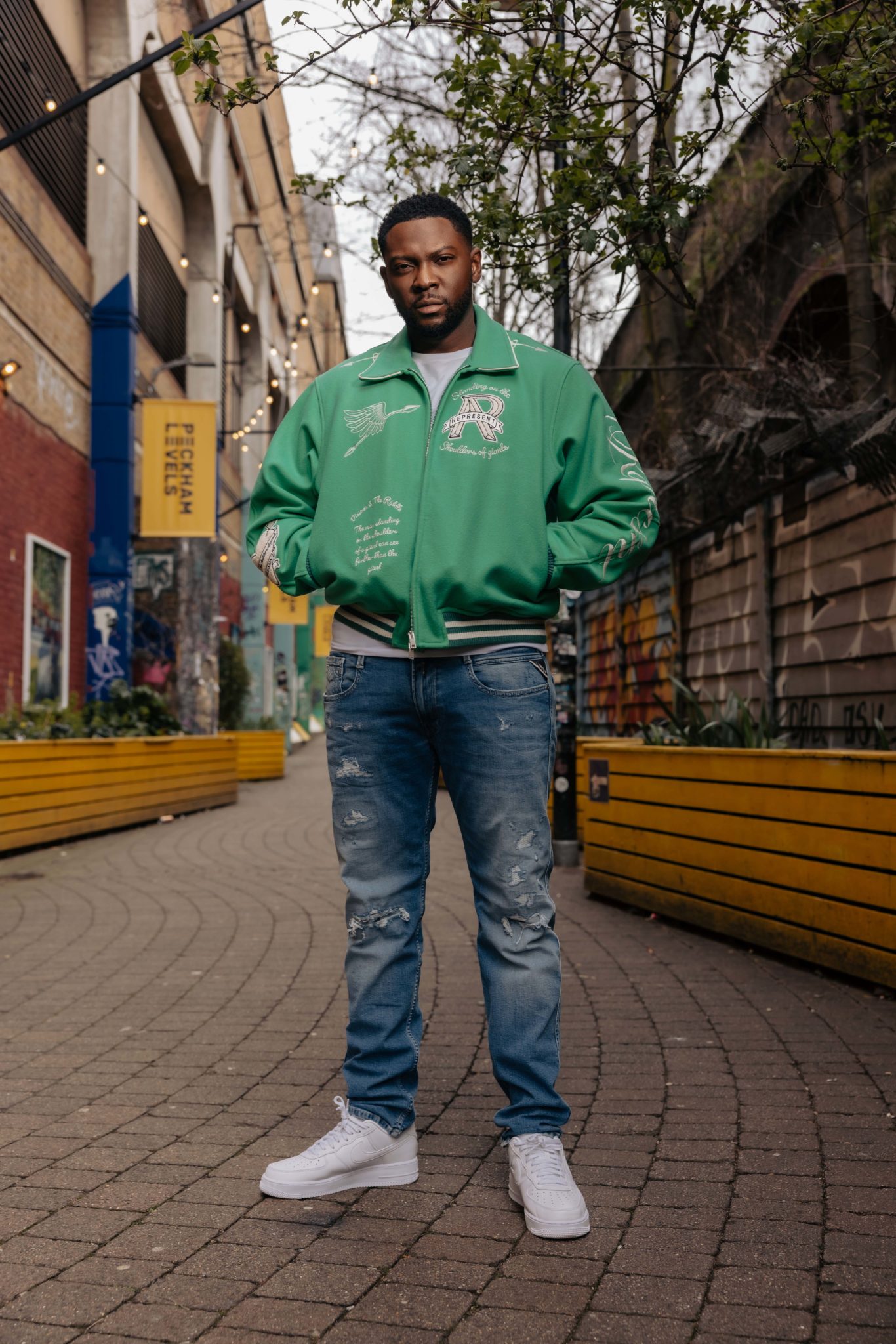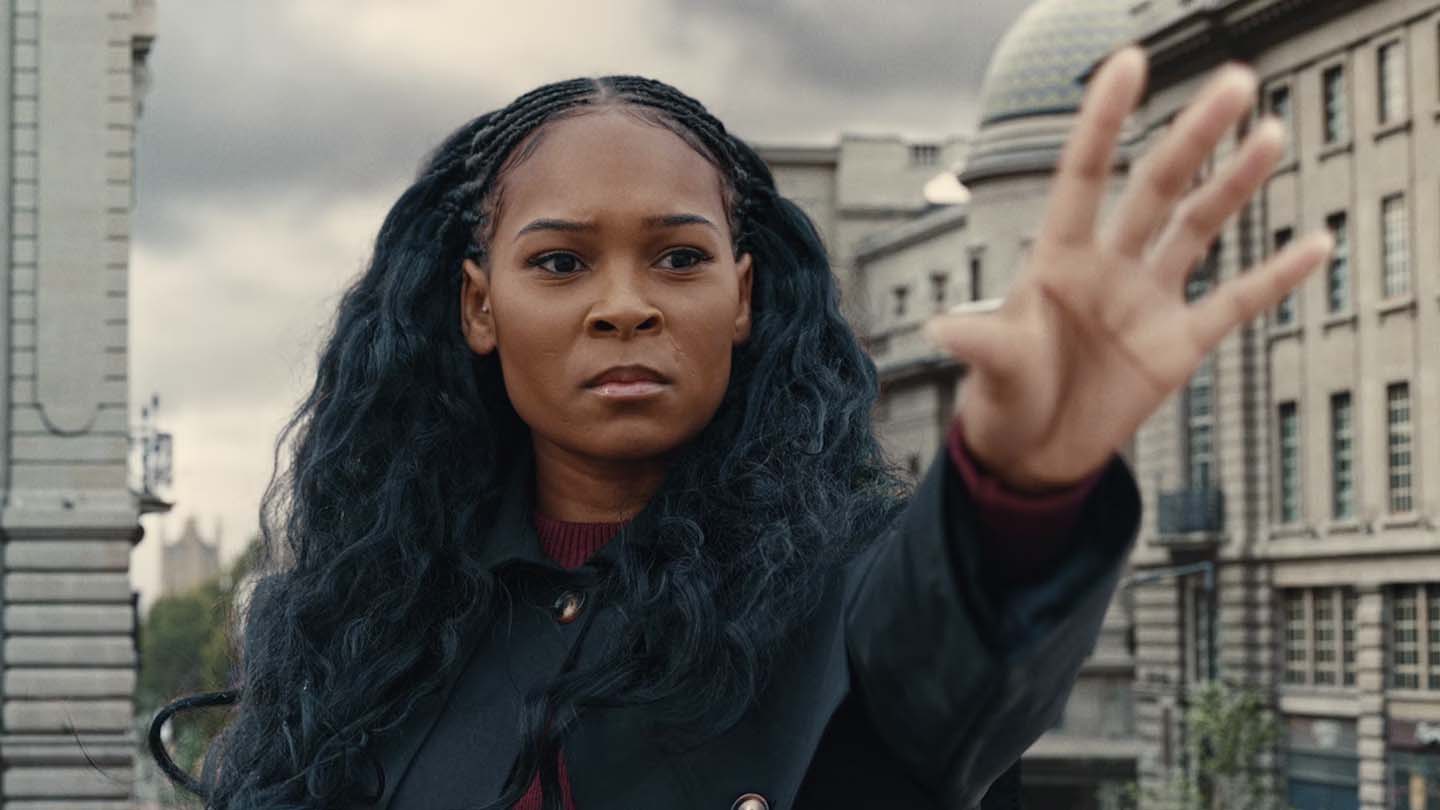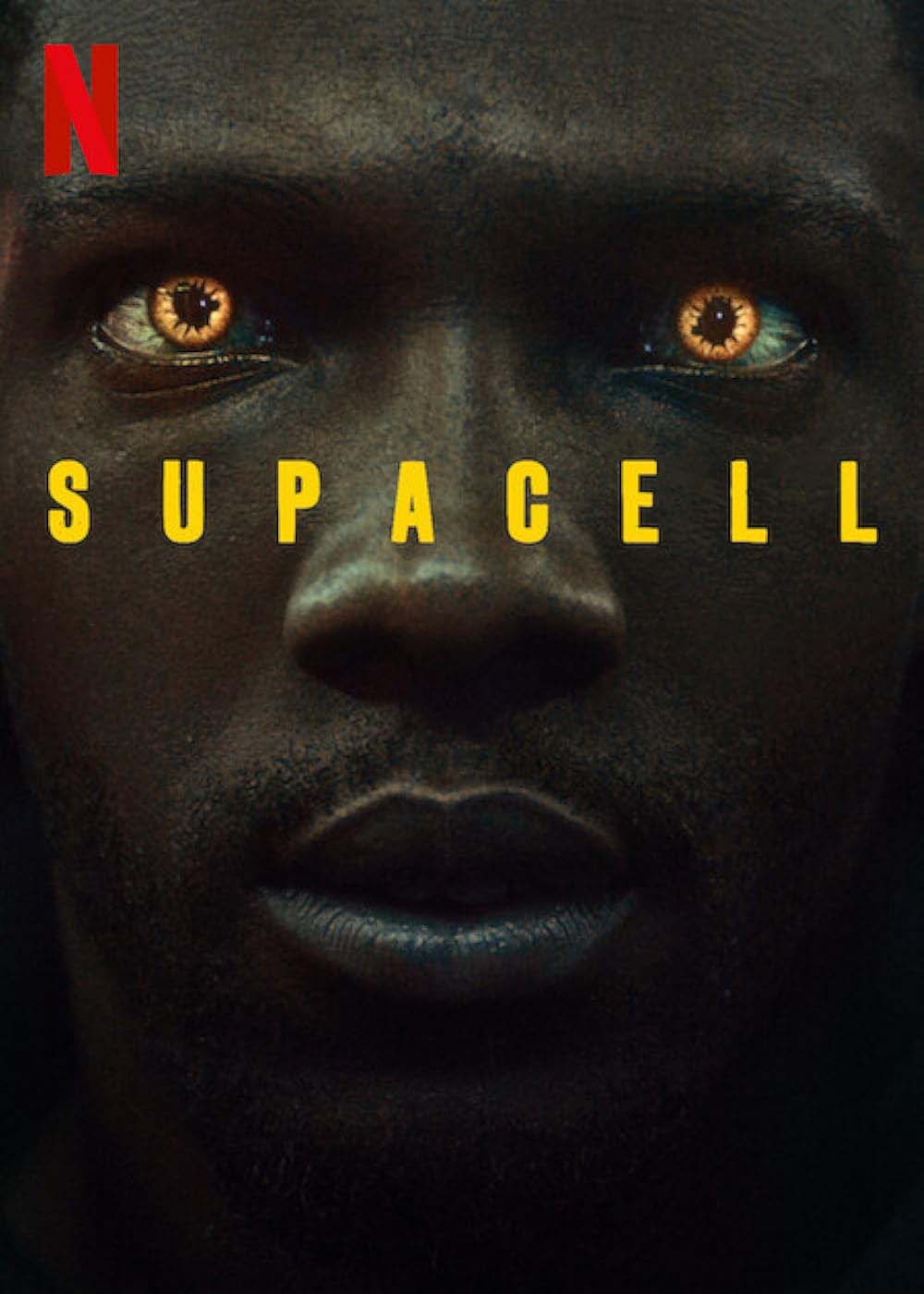- Film And TV
- 19 Jul 24

Having scored a cult hit – and triggered the tabloids – with his 2019 gangland thriller Blue Story, RAPMAN has cemented his position as one of the UK’s most important filmmakers with Supacell, which takes five Black Londoners into the sci-fi realm. He talks to STUART CLARK about censorship, breaking down barriers and having Jay-Z as a champion.
If British cinema has had a recent Sex Pistols ‘The Filth and the Fury’ moment it was in 2019 when The Sun (who else?) gleefully reported the gang violence that broke out at a screening of Blue Story in Birmingham.
Subsequently pulled by two of the UK’s biggest cinema chains, it was a period of deep frustration for its writer-director Andrew Onwubolu, AKA Rapman, who’d begged and borrowed £1.3 million to make a film that depicted the gritty realities of life in his native South London.
Instead of being hailed as a British Spike Lee, the 35-year-old was dragged into the increasingly hysterical tabloid debate/rant about drill music, black-on-black violence and the capital’s so-called ‘postcode wars’.
His career was in danger of being derailed by the fallout when a member of hip-hip royalty intervened.
“Jay -Z, who helped with the making of Blue Story and has been a big supporter of mine, went to the people at Netflix and said, ‘I want you to meet this English guy I know,’” Rapman recalls. “Before that I didn’t have any real ‘in’ with Netflix. He unlocked a door that otherwise I mightn’t have got through.”
Advertisement

The idea he ended up pitching to Netflix was Supacell, the tale of five common-or- garden Black South Londoners who suddenly develop superpowers.
“I’d watched shows like Misfits and Heroes and thought, ‘Ooh, we’re getting close but it’s not quite my world. I don’t see me in there,’” Rapman resumes. “I knew that if I was going to make a series about five people entering the sci-fi realm, they were going to have to look, sound and live like me. I went to Netflix thinking, ‘Even if they like the concept, they’ll want to relocate it to New York or Los Angeles’, but to my amazement they said ‘Yes!’ to pretty much everything.”
Including the budget, which contains considerably more zeroes than the £3,000 which bankrolled his 2018 YouTube three-parter, Shiro’s Story, which is up around the ten million views mark.
“They let us fly to the sky with it, man!” Rapman enthuses in the Supacell 'making of’ featurette, which is awash with explosions, cars and actors dangling off perilously high cranes and shots of its writer-director looking like the cat who’s got not just the cream but the whole dairy.
“Knowing what it’s like to work for pretty much free – the first money I ever made in this industry was £500 for a YouTube video – I appreciated every penny of that budget. And having the proper permits from the London Mayor’s Office to shoot on the streets – albeit they have all sorts of rules attached to them.”

Advertisement
The main one being that they ain’t going to give you one if your film or TV show depicts knife and gun crime, which is censorious in the extreme.
“Welcome to my world,” Rapman groans. “They won’t issue you with a permit unless they’ve okayed the script. We had to shoot Blue Story, which is primarily set in Deptford and Peckham, outside of London in Enfield. We got away with the gang elements in Supacell because it’s not the series’ main thread.
“Not having it on screen isn’t magically going to make the real life violence go away,” he adds.
There doesn’t seem to be the same hoo-ha when Jason Statham and Vinnie Jones make their gangster movies.
“Yeah, I wonder why that is?” Rapman sighs. “Violence seems to be acceptable in some films but not others. Politicians shouldn’t be trying to exert control over filmmakers.”
Having run round Rapman’s manor myself as a kid – the July ’77 night when Dire Straits opened for Squeeze in the Albany Empire, Deptford is indelibly stamped on my mind – I was equally eager for his corner of the capital to be depicted properly.
“We call it the sixth lead,” he reflects. “I really wanted Deptford to be seen. I really wanted Peckham to be seen. I really wanted people to know what South London is like. Let me see where my Mom picks up her hair. People outside of the UK are gonna watch this show, and feel like they know what South London is like.”
Advertisement
As Tosin Cole, who plays lead character Michael, notes: “There’s a lot of superpowers in this show, but it’s still very much grounded in real life. Super aliens ain’t coming to destroy the world. I saw people that I recognised as I turned each page of the script.”
Nodding, Rapman adds, “It’s real people first, superheroes second. It’s a sci-fi series that in many ways doesn’t seem like a sci-fi series because the characters are all very relatable – if you live in London, you’ve met loads of Michaels. Only they’re not able to stop time and teleport from one place to the other.
“As much as his mind is blown by suddenly having these powers, his number one priority is still his girlfriend Dionne who’s his anchor. They’ve been together a long time and love each other through and through”
The writer-director has also bestowed superpowers on Delboy-esque weed dealer Rodney (speed); under pressure single dad Andre (strength); big-hearted NHS nurse Sabrina (telekinesis); and knife-wielding gang leader Tazer (invisibility).
Tazer, who beneath the streetwise bluster is a sensitive soul, is beautifully played by Josh Tedeku who says of Rapman: “He’s so assured in what he’s doing and what he’s created. And it’s always amazing to work with someone like that. He almost reminds me of my brothers. They do short films and stuff like that and they’re so sold on what they’re doing and nobody can stop them from making their vision. And it’s so inspiring as an independent filmmaker to see that.
“Rapman got to where he is with Shiro’s Story and Blue Story. He did that himself. And then coming on to Supacell – even though it’s with Netflix now and it’s not independent anymore, he still has that energy of, ‘This is my vision and nobody’s taking this from me.’ That is an amazing quality that only a few people have, and it was amazing working with him.”
Having said in the past that, “I can always tell when an all-black show is made by a white person,”, Rapman went out of his way to create the perfect working environment for the Supacell actors.
Advertisement
“One of the things I did,” he reveals, “was go to the technical guys and say, ‘Can you light and film this in a way that compliments the actors’ skin tone because when I see scenes with both white and black faces in them, it’s the black ones you can’t see properly.’ Things like that make a big difference.”
Onwubolu has also written roles for his fellow spitters Digga and Ghetts who he describes as “an instinctive actor; he didn’t need any directing.”

He likens the first season of Supacell to Bat-Man: Begins “in that it’s an origin story. There’s so much more to come from these characters who are only at the start of their journey. I’ve stuff planned for them that’s insane!”
I wouldn’t doubt it for a minute.
Finally, has Jay-Z delivered his verdict on Supacell yet?
“Yeah, he saw the first couple of episodes last year and loved them,” Rapman concludes. “I met Jay in February in L.A. and he was like, ‘These characters and the storyline are incredible!’ He recognises what a game-changing show it is.”
Advertisement
• Supacell can be watched now on Netflix










